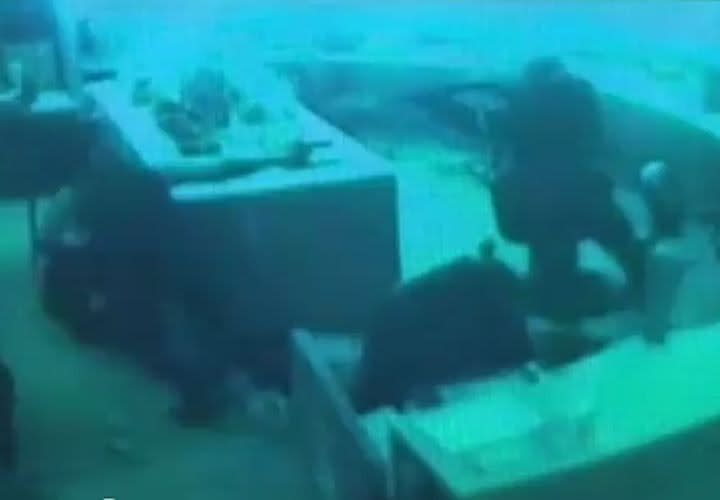Many of you have watched the video of the close-quarters shootout inside a Detroit Police station. It's a miracle only the suspect died and all four wounded officers will recover.
Could something like this happen to any of us? If we're truly honest with ourselves, the answer is a resounding, Yes. We've all (myself included), made our share of mistakes, had our close calls, and are probably lucky to still be alive today.
Let's begin with the one place most of us consider reasonably safe and secure: our police stations. The reality is there are still too many police stations without adequate security measures, including site hardening. Police are attacked in or near police stations. Fortunately, not very often, but often enough to rattle us.
In addition to attacks in or near police facilities, there are what I call "close-call scares." One example that I know of this involved a SWAT officer alone and unarmed in the SWAT office in his gym clothes about to go workout when three outlaw bikers walked in through an unlocked door inquiring about the location of their confiscated "colors." After several very tense moments, the bikers left without incident. The officer immediately armed himself and locked the door. Since then, the door stays locked 24/7. A simple thing like locking the door could have prevented what could have easily turned into disaster.
Some 40 years ago during the radical era, police stations were frequently targeted. One San Francisco substation was attacked by armed militants, who killed a sergeant by firing a shotgun through the portal of the bullet-resistant glass partition. It wasn't until 30-plus years later that a number of Black Panthers were arrested for the murder.
In the same era, the suburban Shaker Heights, Ohio, police station was destroyed by a bomb that detonated prematurely while the suspect was planting it. The bomber harbored a grudge toward SHPD and walked into the station unchallenged. It's believed his bomb was accidentally triggered when a dispatcher keyed the mike. Today, the best description for the "new" SHPD station: fortress.
In the 1980s, police officers were killed inside a Washington, D.C., police station, by a criminal who managed to obtain a gun.
The litany of attacks on police stations is lengthy, having occurred in cities, suburbs, and rural areas alike. For every attack, there are undoubtedly countless more close calls, many we probably don't even know about.
In one large Midwest city, nearly a dozen men wearing exposed full-length "ceremonial" swords and robes brazenly entered police headquarters walked past security and took the elevator up to the Chief's office. They demanded to see the Chief about a complaint against police. After being told the Chief was unavailable, the men left the HQ and back onto the street.
At no time were the men challenged by any officer, despite wearing openly exposed swords on their person, in violation of a number of city ordinances. That was a very close call.
Very shortly afterward, guess where security measures were beefed up? The Chief's office. Enhancements included bullet-resistant glass and enhanced doors and locks limiting access only to the office lobby.
So what can we as officers do to better secure the places where we work? For immediate starters, we need to remain constantly alert. We need to recognize where we're vulnerable and take whatever counter-measures we reasonably can to site-harden our surroundings. These measures include things like locking the doors and challenging any unauthorized persons. We also need to officially document any vulnerabilities and concerns. Finally, things do happen even when all appropriate measure have been taken. So we need to have immediate access to our firearms inside our stations.
Remember, if we can't protect ourselves, how can we expect to protect the citizens we serve?
What happened in Detroit could very easily happen in police stations all across America.












